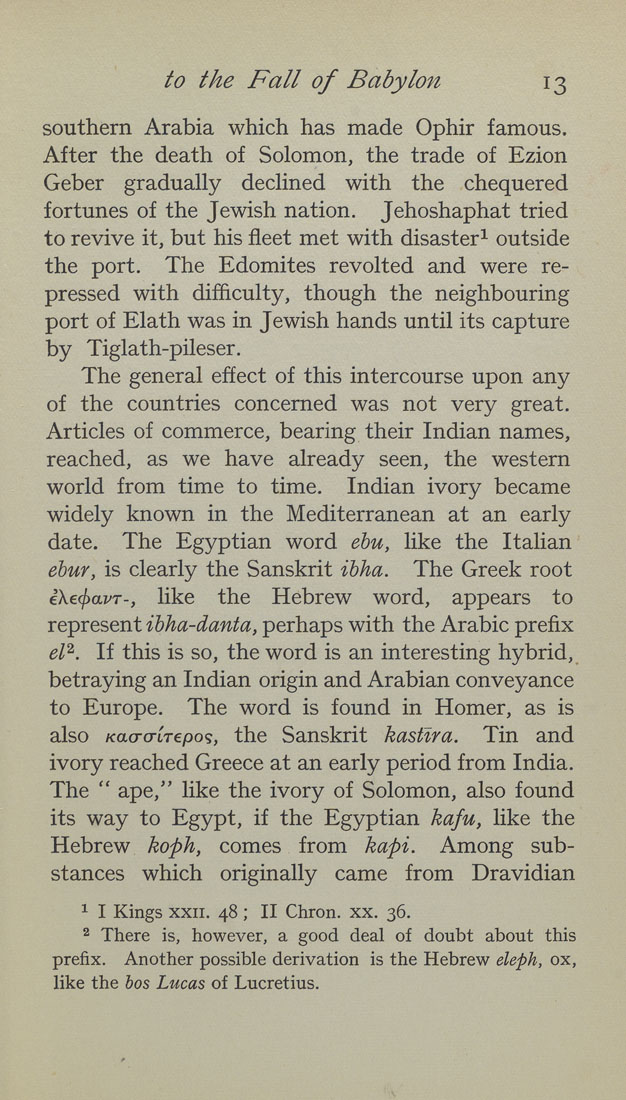to the Fall of Babylon 13
southern Arabia which has made Ophir famous.
After the death of Solomon, the trade of Ezion
Geber gradually declined with the chequered
fortunes of the Jewish nation. Jehoshaphat tried
to revive it, but his fleet met with disaster^ outside
the port. The Edomites revolted and were re¬
pressed with difficulty, though the neighbouring
port of Elath was in Jewish hands until its capture
by Tiglath-pileser.
The general effect of this intercourse upon any
of the countries concerned was not very great.
Articles of commerce, bearing their Indian names,
reached, as we have already seen, the western
world from time to time. Indian ivory became
widely known in the Mediterranean at an early
date. The Egyptian word ebu, like the Italian
ehur, is clearly the Sanskrit ibka. The Greek root
i\e(f)avr-, like the Hebrew word, appears to
represent ibha-danta, perhaps with the Arabic prefix
el^. If this is so, the word is an interesting hybrid,
betraying an Indian origin and Arabian conveyance
to Europe. The word is found in Homer, as is
also /cacro-trepo?, the Sanskrit kastira. Tin and
ivory reached Greece at an early period from India.
The " ape," like the ivory of Solomon, also found
its way to Egypt, if the Egyptian kafu, like the
Hebrew koph, comes from kapi. Among sub¬
stances which originally came from Dravidian
1 I Kings xxii. 48; II Chron. xx. 36.
2 There is, however, a good deal of doubt about this
prefix. Another possible derivation is the Hebrew eleph, ox,
like the bos Lucas of Lucretius.
|








